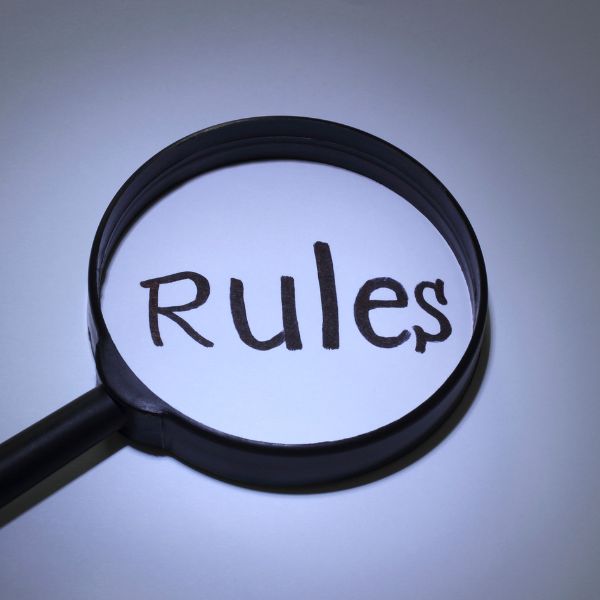
What is Trademark?
A trademark is a recognizable symbol, word, phrase, design, or combination thereof that identifies and distinguishes the source of goods or services from those of others. It is a form of intellectual property protection that grants exclusive rights to the owner of the trademark to use it in commerce and prevent others from using a similar mark that could cause confusion among consumers. Trademarks play a crucial role in branding, as they help consumers identify and associate specific products or services with a particular company or business.
Process of Trademark:
- Conduct a thorough search for the desired trademark to see whether it has already been registered or if anybody else is using it.
- Application Filing: Prepare and submit the trademark application to the appropriate IP authority with all necessary information, including the mark and the description of the goods/services.
- Examining: The application is examined by the IP office to make sure it complies with all legal requirements and does not infringe on any already-registered trademarks.
- Publication and Opposition: After the application has been approved after inspection, it is publicised so that anybody may contest the registration if they feel it violates their rights.
- Registration and Issuance: The trademark is registered and a certificate of registration is issued, providing the owner exclusive rights, following the successful conclusion of the opposition period or settlement of any opposition.

Benefits of Trademark:
- Brand Protection: Trademarks provide legal protection to your brand, preventing others from using similar marks that could cause confusion among consumers.
- Exclusive Rights: Trademarks grant you exclusive rights to use the mark in connection with your goods or services, giving you a competitive edge in the market.
- Business Reputation: Trademarks help build and maintain a strong business reputation, as they signify the quality and origin of your products or services.
- Consumer Trust: Trademarks instill confidence and trust in consumers, as they recognize and associate your mark with positive experiences and consistent quality.
- Asset Value: Trademarks can become valuable assets over time, as they can be licensed, franchised, or sold, generating additional revenue for your business.
Trademark Rules
Trademark rules are a set of regulations and guidelines that govern the registration, use, and protection of trademarks. These rules vary across jurisdictions, but their primary objective is to ensure the distinctiveness, non-confusion, and lawful use of trademarks. Trademark rules generally require trademarks to be unique and capable of distinguishing the goods or services of one entity from those of others. They prohibit the use of deceptive or misleading marks that may cause confusion among consumers. Trademarks are typically registered with the relevant intellectual property office, following a specific application process and payment of required fees. Once registered, trademarks are protected for a specified duration, and their owners have the exclusive rights to use them in connection with their goods or services. Violations of trademark rules can result in legal consequences, such as infringement claims and penalties. It is essential for businesses and individuals to understand and adhere to trademark rules to safeguard their intellectual property and ensure fair competition in the marketplace.

FAQ:
If a common term or phrase is utilised in a particular way that makes it stand out from others in the same business, it may be feasible to trademark it. However, in some situations, trademark authorities can need further proof of uniqueness.
An unregistered trademark is denoted by the TM symbol, whereas a registered trademark is denoted by the ® symbol. Only once the trademark has been formally registered may the ® sign be utilised.
If your company name satisfies the standards for distinctiveness and does not clash with any already registered trademarks in your field, you may choose to trademark it.
Yes, logos that serve as a source identification for products or services that are distinctive and identifiable can be trademarked.
Yes, if a slogan is distinctive and connected to your business or goods/services, it can be registered.
Yes, it is feasible to file a trademark application in numerous countries under the Madrid System in order to obtain trademark protection globally.
You may file a lawsuit to assert your rights if someone uses a mark that is confusingly similar to yours to sell products or services that are similar to yours. This legal action may involve asking for monetary compensation and an injunction to halt the infringement.
A trademark is a recognisable sign, symbol, or expression used to identify and set one company's products or services apart from those of other companies.
When a trademark is registered, the owner is given legal protection and exclusive rights, barring third parties from using the same mark for competing products and services.
The length of a trademark registration varies based on the jurisdiction and is normally a certain amount of time. As long as the mark is still in use, trademark registrations can frequently be extended forever.
Documents Required for Trademark
- Trademark Application Form
- Proof of Identity
- Proof of Address
- Logo or Trademark Design
- Description of Goods/Services
- Power of Attorney
- Priority Document (if applicable)
- Affidavit of Use (if applicable)
- Authorization Letter (if applicable)
- Government Fees


